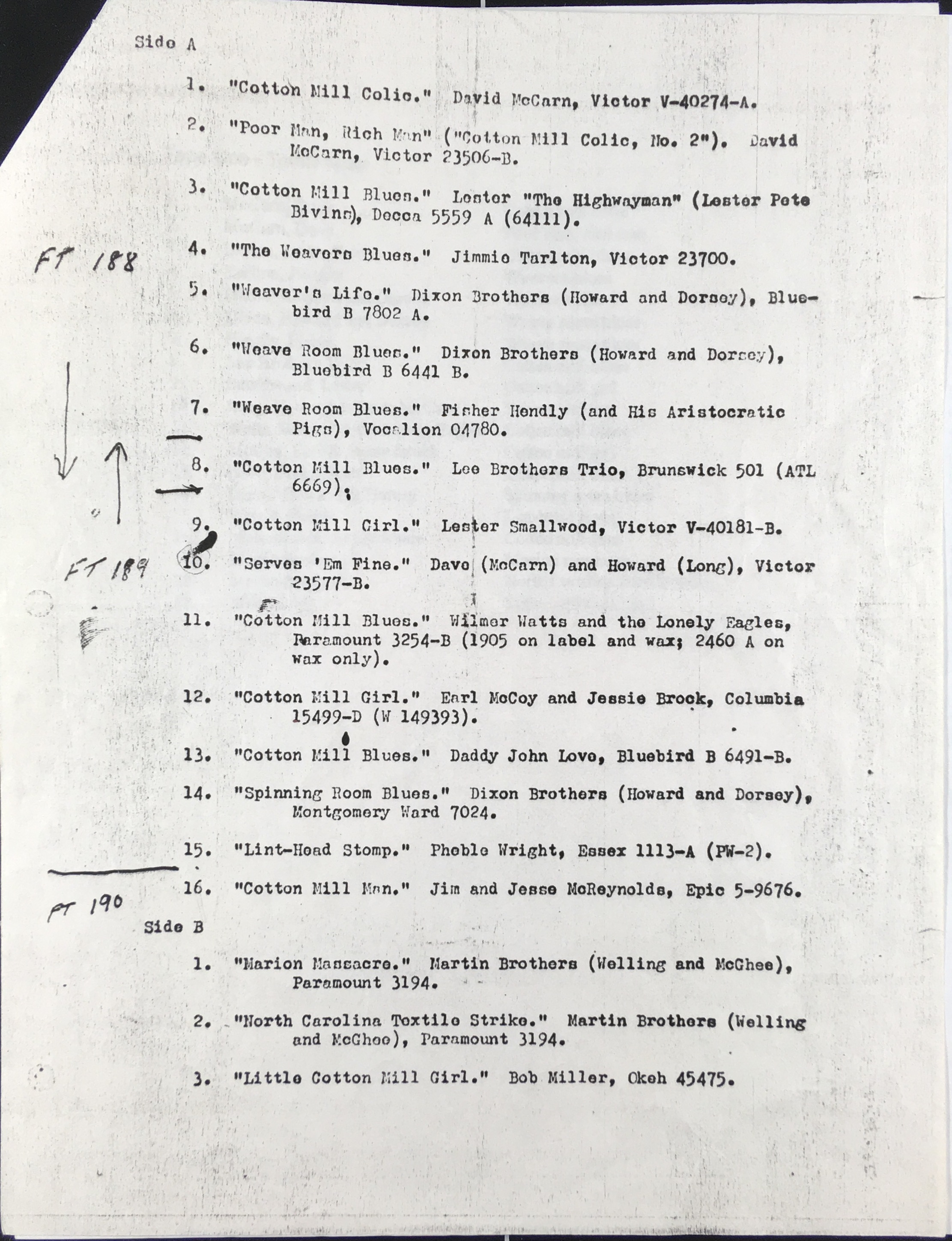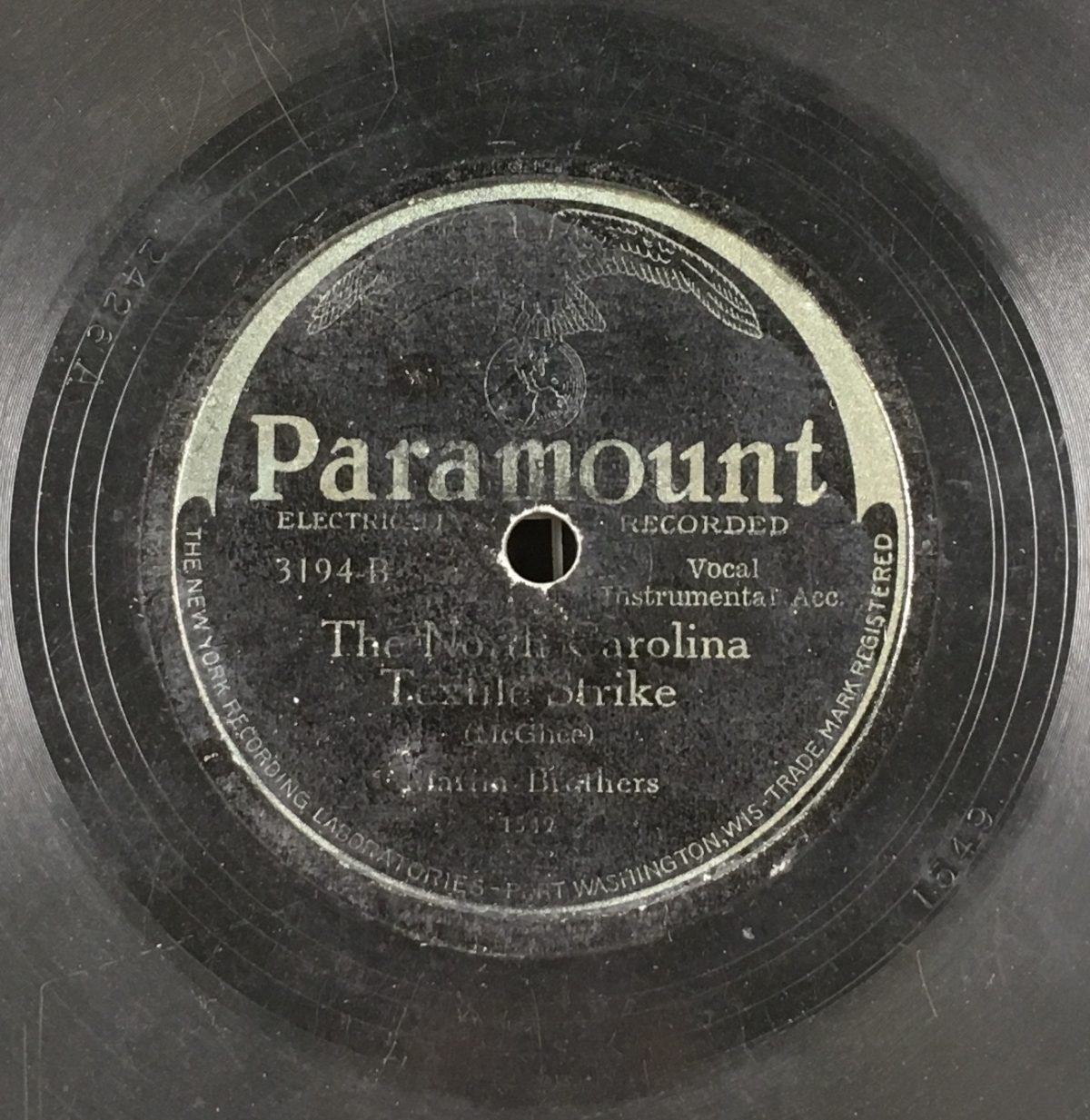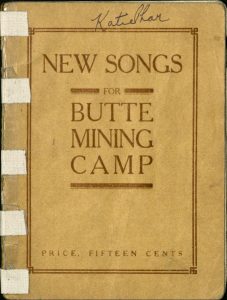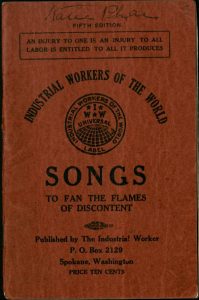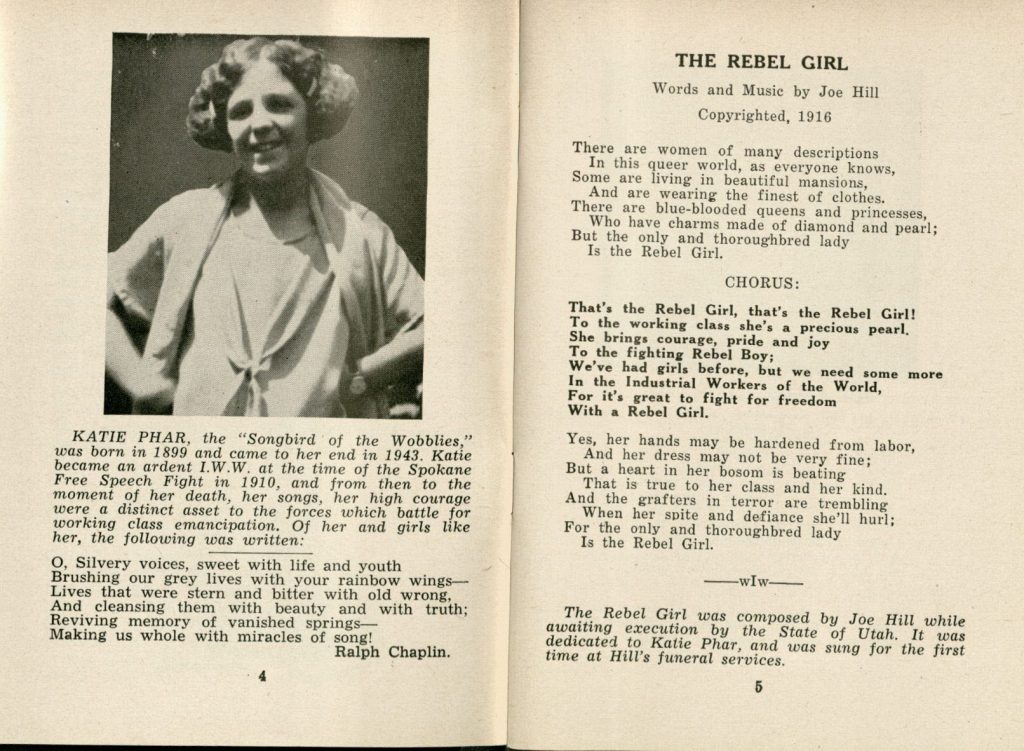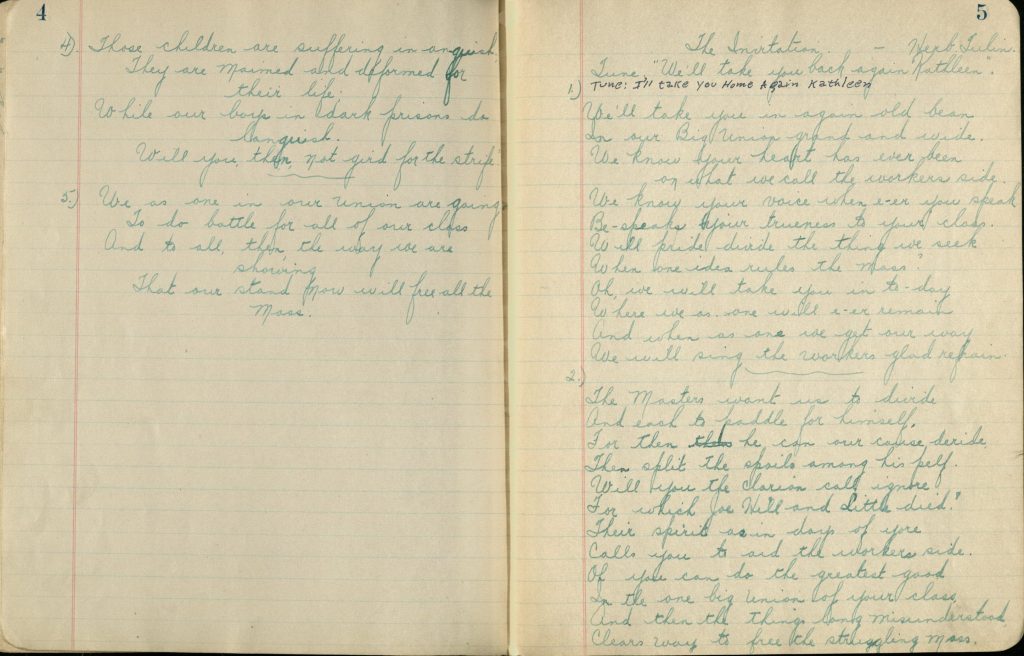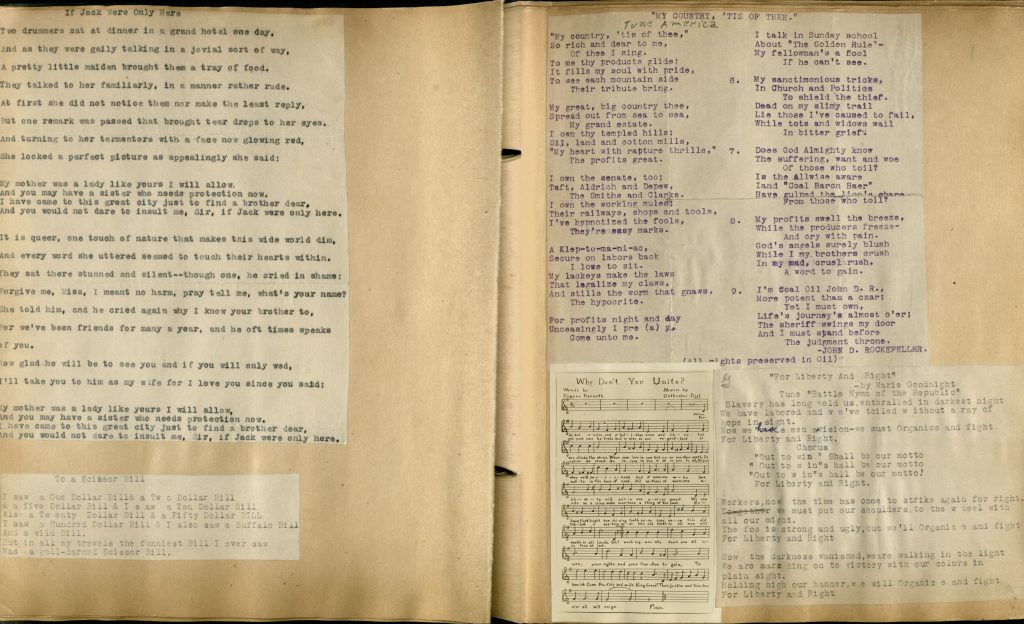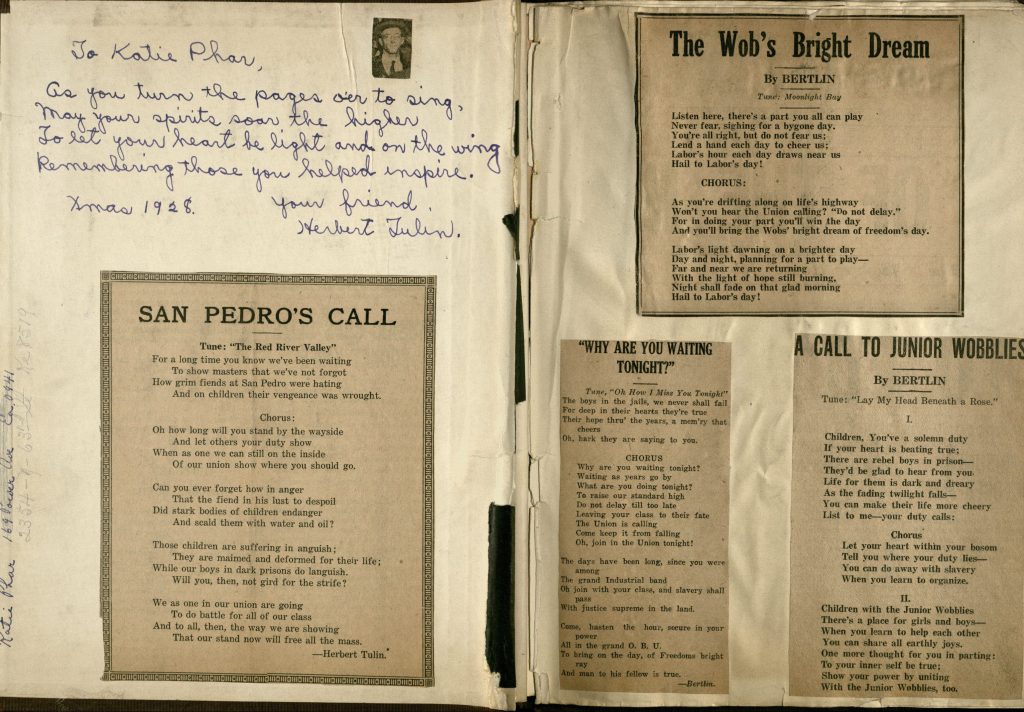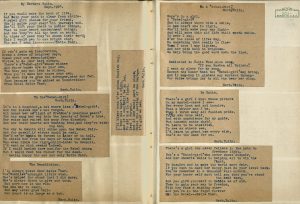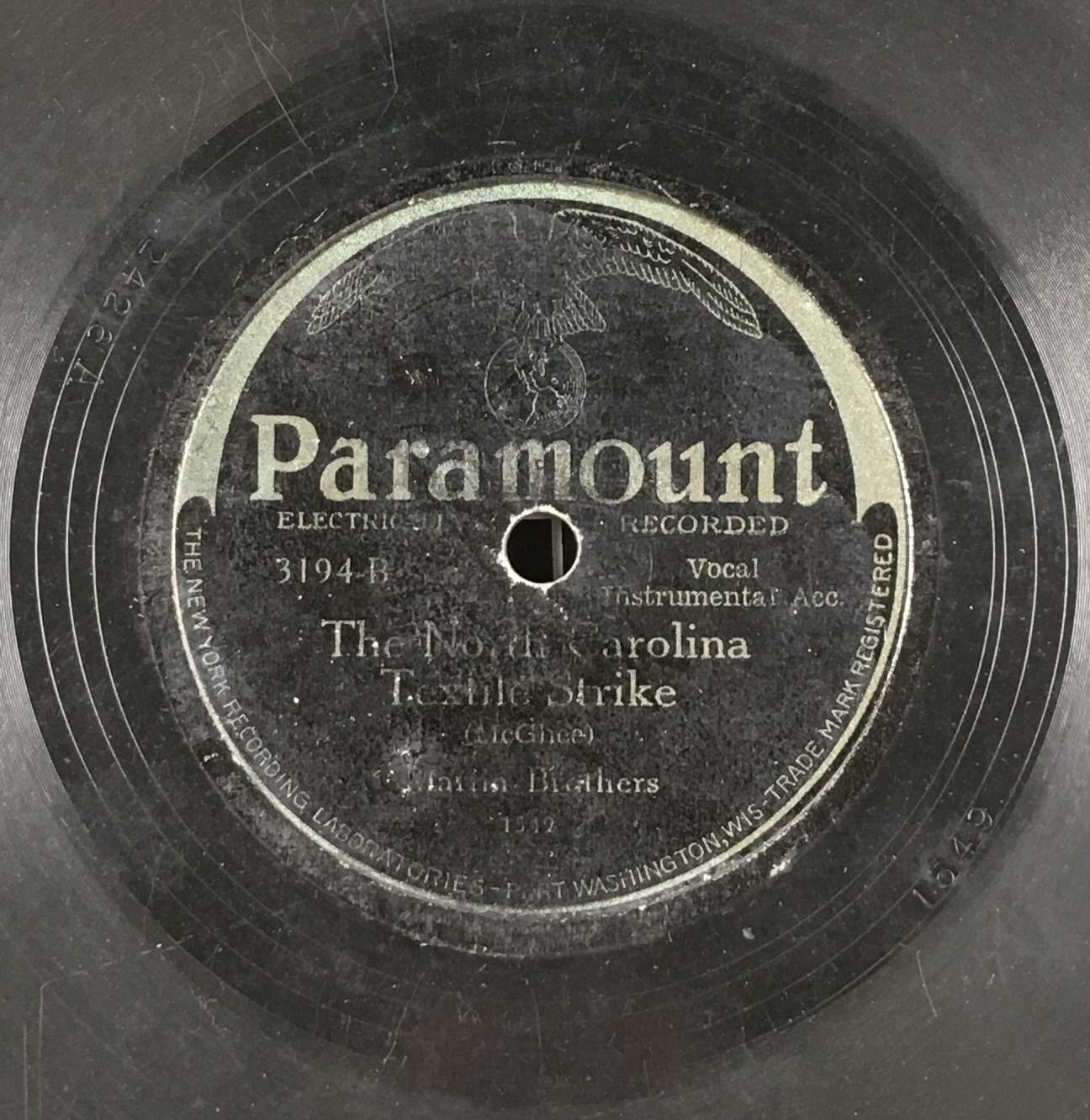
In addition to the intrepid works of Ella May Wiggins, conflicts at textile mills in North Carolina in the late 1920s inspired quite a bit of commercially released labor songs relating specifically to textile work. The working class’ struggles with their employers immediately surrounding the depression were so pervasive that labels became interested in releasing strike songs due to high demand for this material – even if the artists releasing the music had little stake or political affiliation with the striking community. Regardless, many of the songs had a sympathetic attitude and stood in solidarity with laborers.
One such example is Welling and McGhee’s “The North Carolina Textile Strike”/”Marion Massacre,” available in the SFC as 78-16684.
Ronald D. Cohen (who has his own SFC collection) writes in his 2016 book Depression Folk: Grassroots Music and Left-Wing Politics in 1930s America:
“The prolific duo of Frank Welling, a vaudeville entertainer, and John McGhee, a lay preacher, using the name the Martin Brothers, composed and recorded “The Marion Massacre”/“North Carolina Textile Strike” for Paramount in 1929. They had no political agenda but used the strike to create event songs to sell records, a common strategy at the time.”
My hope was to make a transfer of this recording to share as part of this blog post. However, I noticed a severe crack in the disc. Occasionally it’s possible to play back a disc with a minor crack, but attempting to play back this one would have potentially damaged the media, or lobbed off the tip of the playback stylus. There are various ways to play back broken and cracked discs – optical playback systems and scanners have become more accessible in recent years – but our audio preservation priorities are typically dedicated to materials not already commercially available.
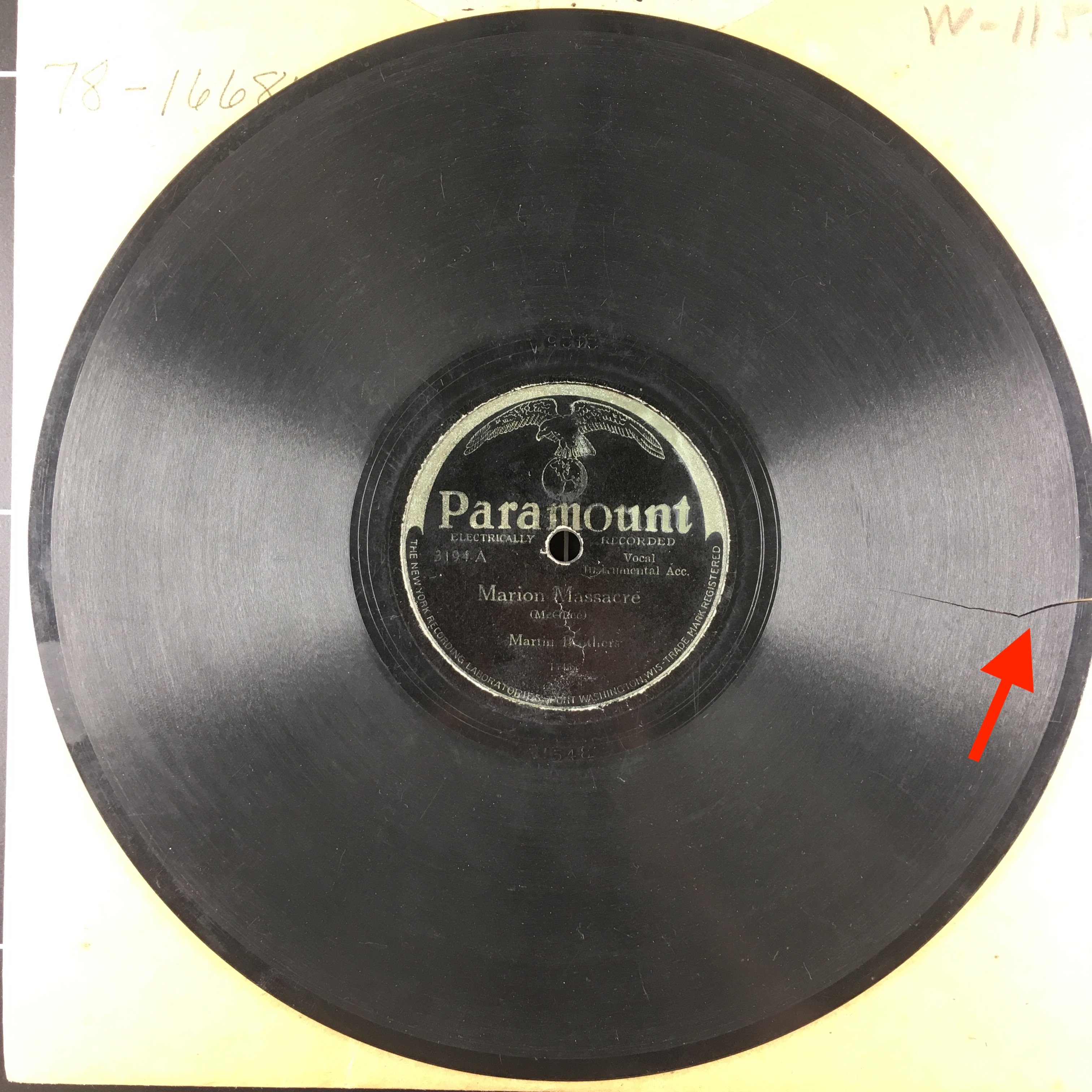
Fortunately, there was an easy solution: The Archie Green Collection (20002) already contained an audiotape transfer of this disc – alongside many other labor songs about textile work and accompanying papers. These are available as FT 188-90 and folder 397, respectively. While not of equivalent quality of a modern preservation transfer, this copy contains an acceptable level of intelligibility.
